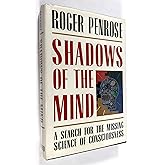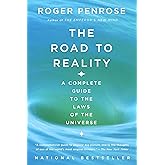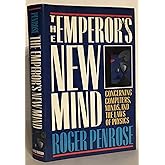
Enjoy fast, free delivery, exclusive deals, and award-winning movies & TV shows with Prime
Try Prime
and start saving today with fast, free delivery
Amazon Prime includes:
Fast, FREE Delivery is available to Prime members. To join, select "Try Amazon Prime and start saving today with Fast, FREE Delivery" below the Add to Cart button.
Amazon Prime members enjoy:- Cardmembers earn 5% Back at Amazon.com with a Prime Credit Card.
- Unlimited Free Two-Day Delivery
- Streaming of thousands of movies and TV shows with limited ads on Prime Video.
- A Kindle book to borrow for free each month - with no due dates
- Listen to over 2 million songs and hundreds of playlists
- Unlimited photo storage with anywhere access
Important: Your credit card will NOT be charged when you start your free trial or if you cancel during the trial period. If you're happy with Amazon Prime, do nothing. At the end of the free trial, your membership will automatically upgrade to a monthly membership.
Buy new:
-22% $13.99$13.99
Ships from: Amazon Sold by: OGZ Design
Save with Used - Good
$7.78$7.78
Ships from: Amazon Sold by: RNA TRADE LLC

Download the free Kindle app and start reading Kindle books instantly on your smartphone, tablet, or computer - no Kindle device required.
Read instantly on your browser with Kindle for Web.
Using your mobile phone camera - scan the code below and download the Kindle app.

The Emperor's New Mind Reprint Edition
Purchase options and add-ons
- ISBN-100140145346
- ISBN-13978-0140145342
- EditionReprint
- PublisherPenguin Books
- Publication dateJanuary 1, 1991
- LanguageEnglish
- Dimensions5.75 x 1.5 x 9 inches
- Print length480 pages
Frequently bought together

Customers who viewed this item also viewed
Editorial Reviews
Amazon.com Review
Penrose claims that there is an intimate, perhaps unknowable relation between quantum effects and our thinking, and ultimately derives his anti-AI stance from his proposition that some, if not all, of our thinking is non-algorithmic. Of course, these days we believe that there are other avenues to AI than traditional algorithmic programming; while he has been accused of setting up straw robots to knock down, this accusation is unfair. Little was then known about the power of neural networks and behavior-based robotics to simulate (and, some would say, produce) intelligent problem-solving behavior. Whether these tools will lead to strong AI is ultimately a question of belief, not proof, and The Emperor's New Mind offers powerful arguments useful to believer and nonbeliever alike. --Rob Lightner
From Publishers Weekly
Copyright 1990 Reed Business Information, Inc.
Product details
- Publisher : Penguin Books; Reprint edition (January 1, 1991)
- Language : English
- Paperback : 480 pages
- ISBN-10 : 0140145346
- ISBN-13 : 978-0140145342
- Item Weight : 1.13 pounds
- Dimensions : 5.75 x 1.5 x 9 inches
- Best Sellers Rank: #2,029,132 in Books (See Top 100 in Books)
- #4,522 in Philosophy (Books)
- #5,751 in Mathematics (Books)
- #8,966 in Computer Science (Books)
- Customer Reviews:
About the author

Discover more of the author’s books, see similar authors, read book recommendations and more.
Customer reviews
Customer Reviews, including Product Star Ratings help customers to learn more about the product and decide whether it is the right product for them.
To calculate the overall star rating and percentage breakdown by star, we don’t use a simple average. Instead, our system considers things like how recent a review is and if the reviewer bought the item on Amazon. It also analyzed reviews to verify trustworthiness.
Learn more how customers reviews work on AmazonCustomers say
Customers find the book well written and highly readable. They appreciate its depth, with one customer noting it provides a step-by-step theory of consciousness.
AI-generated from the text of customer reviews
Select to learn more
Customers appreciate the depth of the book, with one customer highlighting its step-by-step theory of consciousness and another noting how it explores rarely travelled paths through the human mind.
"...subject offers more much than I can understand but still sheds light on his findings...." Read more
"...If you are looking for a decent discussion of consciousness, the relevant contents of this book could be easily condensed to a rather uninteresting..." Read more
"Good. book, Roger Penrose, a great scientist, writes well!" Read more
"The book contains an excellent overview of modern physics, computability theory and mathematical logic and includes some thought provoking ideas...." Read more
Customers praise the writing quality of the book, noting it is well written and great for writers, with one customer highlighting its clear explanations.
"...opposite, and I do have to say that he is undoubtedly good at explaining his arguments...." Read more
"This is an extraordinary book. It is deep, very deep, but easy to read...." Read more
"...than read the book, where the arguments are presented in a good and convincing way...." Read more
"Good. book, Roger Penrose, a great scientist, writes well!" Read more
Top reviews from the United States
There was a problem filtering reviews. Please reload the page.
- Reviewed in the United States on June 23, 2015As a junior Ph.D. student who hopes to have a career in the research of artificial intelligence (machine learning or deep learning more precisely), I was reading this book as a touch on the opposite of the belief that intelligence is achievable by machines. Apart from several of his dramatic tones towards mocking A.I. (what was that story in the pro- and epi-logue about?), this book has been a very enjoyable experience for me.
Roger Penrose is definitely one scientist that holds a very strong opinion on this opposite, and I do have to say that he is undoubtedly good at explaining his arguments. This book did a good job at disseminating a set of fundamental ideas from a physics perspective in relation to some very philosophical and mathematical issues. From my reading, there are two streams of ideas in the book. The first one is from mathematics, including the introduction of algorithms, Turing machines and logical proof systems. The second one is from physics, from classical mechanics to relativity and quantum mechanics and beyond. The interaction of these two streams by itself is worth reading by anyone who is pondering on the fundamental doubts of the mind, intelligence and conciousness.
From the first stream, the book’s main argument rests on the Turing halting problem and Gödel’s incompleteness theorems. From these theorems, he argues that machines could not be like humans since it could not know the truthness of these self-referencing statements. I am not yet convinced by this seemingly sound argument, because it rests on the fact that there is certain statement about the system itself that it could not know true or false. We humans could perceive that these incomplete statements are true, because we are not these systems therefore they are not self-referencing statements for ourselves. We do not have an answer to whether we ourselves are free from these incomplete limitations, since if we had the answer it would violate the incompleteness theorems. Who knows, maybe some aliens would think of us as no difference from we think of the machines, and apply a form of Cantor’s diagonalization to say that “look, humans cannot have mind because they cannot understand these true statements that are obvious to us”! As a result, the presumption that humans are free from incompleteness is one most ridiculous hidden idea in the book.
In the second stream, the book became much more constructive. It is a great journey to explore the searching of an explanation for the mind through the vast space of knowledge in physics. However, throughout the arguments, the ideas could only belong to a set of speculations. This is not a surprise since he argues for the necessity of a correct quantum gravity (CQG) theory to explain the human mind, which should ultimately unify quantum mechanics and general relativity under a single mathematical framework. It is the fact that no such theory yet exists that shakes down many of his arguments and made them merely speculations. As a result, this book in my opinion does a very bad job at opposing artificial intelligence in both streams.
In general, the book is still very much enjoyable just because it contains a grand set of fundamental knowledge. It is particularly so reading from a critic point of view. Roger Penrose also has two later books in the same string of thought, which undoubtedly may explain his ideas better and may resolve some of this book’s issues. I am looking forward to reading them as valuable thought excercises, but may be after a few books from some other human endeavors.
- Reviewed in the United States on May 29, 2010I am just now learning about the quantum aspects of our minds. This pioneer in the study of that subject offers more much than I can understand but still sheds light on his findings.
The University of Arizona's school of Consciousness (Neurology) has a professor teamed up with this author (Dr Hameroff) and together they have expanded these findings into remarkable realms.
We have totally underestimated the capabilities of our minds and certainly the power of Consciousness !
Susanne Zike , Tucson
- Reviewed in the United States on July 5, 2015This book reads like an early draft of Penrose's "Shadows of the Mind." The reader coming afresh to Penrose's ideas would be tempted to skip this earlier book and going straight to Shadows, where the ideas are much more fully developed. The interesting aspect of the earlier work, however, is to see how Penrose's thinking was evolving, purely along physical lines, before he teamed up with the medico and neuroscientist, Stuart Hameroff. It would be a mistake to skip this book, because it is far more readable than "Shadows," the later work being so detailed and technical that many will simply give up on it.
The Emperor's New Mind concentrates on the limitations of formal mathematical logic {as implemented in a computer}, and how human consciousness can stretch past these limitations. Much of this argument is based on Godel's theorems about the limitations of formal systems of logic. Penrose concludes that Artificial Intelligence programs will never, no matter how far computer science develops, be able to produce the kind of conceptual understanding which is characteristic of human consciousness. In a metaphysical leap, he proposes that consciousness is an essentially quantum phenomenon. He gives the "collapse of the wave-function," familiar from conventional interpretations of quantum mechanics, an enhanced status as a real physical effect, and proposes that it is mediated by some {not yet fully understood} effect in Quantum Gravity.
Granted that a conscious observer has featured prominently in discussions of the "measurement problem" from the very beginnings of quantum theory, and that no agreed position has emerged in nearly a century of debate, Penrose's proposal to make the collapse of the wave-function an objective process, and to tie consciousness to it, has more merit than the metaphysical flavour might at first suggest.
- Reviewed in the United States on February 11, 2024Too much math for my ageing brain. Gave it to my son, who is a mathematician. Liked the last chapters, which were more understandable.
- Reviewed in the United States on March 18, 2013This is an extraordinary book. It is deep, very deep, but easy to read. Well, you have to know some Math (or at least like it), Physics, Sciences.
The lecture is not of a novel, it takes some reflection, re-reading, comparing in order to grasp the essentials. But it deserver the time you will spend.
Top reviews from other countries
 M & M GiacominiReviewed in Italy on April 15, 2013
M & M GiacominiReviewed in Italy on April 15, 20132.0 out of 5 stars Not for the faint-hearted
I know this is a good book. I know it's considered a seminal work.
I know you are supposed to say that you really liked it, but I did not.
The book seems to me like a collection of university lessons with no common thread or connectives.
It also requires a deep background of science that few people have and sadly, the author does not make an effort to meet his reader half-way.
Disappointing; give it as a gift to a friend you want to embarass and then question him about it.
-
 CarlosReviewed in Spain on November 30, 2014
CarlosReviewed in Spain on November 30, 20145.0 out of 5 stars Muy entretenido y riguroso, si tienes una mente inquisitiva esta hecho para ti
Explica de forma amena aunque muy rigurosa conceptos complicados accesibles solo a cientificos e ingenieros, de forma que podamos entender los grandes avances que estan teniendo lugar y sus implicaciones. Con este libro no solo te entretienes muchisimo, sino que aprendes más. Muy recomendable si tienes pasión por la física, las matematicas, la computación, y como todas ellas se relacionan para intentar explicar el fenomeno tan alucinante de la consciencia, todo desde un punto de vista eminentemente científico. No es una lectura fácil, pero si gratamente interesante.
 Lincoln YuReviewed in Australia on August 20, 2014
Lincoln YuReviewed in Australia on August 20, 20145.0 out of 5 stars good quality electronic book
nice to have this one of the greatest science books in great quality.
-
 O. GozlanReviewed in France on June 24, 2022
O. GozlanReviewed in France on June 24, 20225.0 out of 5 stars Le roi est nu…et depuis 89 il n‘a plus toute sa tête .
Référence au fameux conte d‘Andersen, celui dans lequel un souverain, se croyant paré des étoffes les plus raffinées et à l‘avant-garde de la mode déambule en réalité en tenue d‘Adam devant ses courtisans médusés, le titre du livre du professeur Penrose ne laisse d’emblée aucun doute sur la thèse qu‘il y défendra : l‘intelligence artificielle n‘est en réalité …qu’artifice .
C‘était déjà une position dissidente en 1989 et elle semble l’être encore davantage aujourd’hui.
Cependant le fait que l’on parle 30 ans après davantage d‘humain augmenté et de transhumanisme que d‘ intelligence artificielle „forte“ ne témoigne t-il pas d‘une certaine évolution quant aux prétentions démiurgiques de nos savants?
Allons droit au but: ce livre est essentiel à la culture personnelle de tout lecteur fusse-t’il même, comme votre serviteur, allergique aux équations et raisonnements scientifiques.
La question résolue d‘avance par l’intitulé n‘est que prétexte à un tour d‘horizon des grands concepts mathématiques physiques et philosophiques des deux siècles passés.
Tout y est exprimé en termes simples et concis, accessibles même au littéraire égaré qui éludera sans complexe (et sans perte de sens) les passages trop matheux.
Précisons cependant qu‘il s‘agit d‘une lecture exigente et de longue haleine, mais le jeu en vaut la chandelle .
 EFO99Reviewed in Brazil on July 30, 2023
EFO99Reviewed in Brazil on July 30, 20235.0 out of 5 stars Good start for those who believe in artificial intelligence
The Emperor's New Mind by Roger Penrose is a challenging and thought-provoking book that attempts to reconcile the laws of physics with the existence of human consciousness. Penrose argues that consciousness is non-algorithmic, meaning that it cannot be fully explained by a Turing machine, which is a theoretical model of computation that is capable of simulating any algorithm. He proposes that consciousness arises from quantum effects in the brain, and that these effects are not deterministic.
Penrose's book has been met with both praise and criticism from physicists and philosophers. Some have argued that his arguments are flawed, while others have found them to be stimulating and insightful. Ultimately, the book is a valuable contribution to the debate about the nature of consciousness, and it is sure to continue to be discussed and debated for many years to come.
From a physicist's point of view, Penrose's book is a tour de force. He weaves together complex ideas from physics, mathematics, and philosophy in a way that is both accessible and engaging. His arguments are well-reasoned and supported by evidence, and he does not shy away from challenging the status quo.
One of the most interesting aspects of Penrose's book is his discussion of quantum mechanics. He argues that quantum mechanics is not fully deterministic, and that this non-determinism is essential for the existence of consciousness. This is a controversial claim, but it is one that has been gaining support in recent years.
Overall, The Emperor's New Mind is a landmark book that has had a profound impact on the way we think about consciousness. It is a must-read for anyone who is interested in the nature of mind and the relationship between physics and consciousness.













